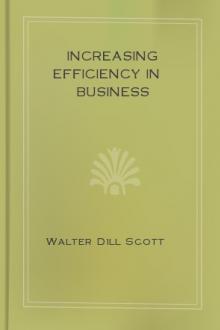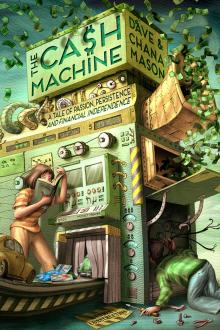Genre Business & Economics. Page - 1

g by With trampling feet of horse and men: Empire on empire like the tide Flooded the world and ebbed again;
A thousand banners caught the sun, And cities smoked along the plain, And laden down with silk and gold And heaped up pillage groaned the wain.
Kemp.
* * *
#The Priestly Lie#
When the first savage saw his hut destroyed by a bolt of lightning, he fell down upon his face in terror. He had no conception of natural forces, of laws of electricity; he saw this event as the act of an individual intelligence. To-day we read about fairies and demons, dryads and fauns and satyrs, Wotan and Thor and Vulcan, Freie and Flora and Ceres, and we think of all these as pretty fancies, play-products of the mind; losing sight of the fact that they were originally meant with entire seriousness--that not merely did ancient man believe in them, but was forced to believe in them, because the mind must have an explanation of things that happen, and an individual intelligence was the only

journals, and other media to guide us. The key word here is guide.
Self-care technologies will increasingly be adapted to a person's learning style, and customized to an individual's needs. Powerful videos, animation, and messaging will save readers time by getting right at the pressing health issue.
Also look for the adaptation of "recognition content" now used by organizations like Amazon® and Netflix®. Adapted for health communications, these technologies will come to anticipate the user's needs.
Organizations can use their own communication tools to help point employees to these valuable, self-help resources. They can encourage employees to ask more questions, understand more options, and develop more opinions. Employees will be empowered "as needed," with information that makes them wiser consumers of health care.
Sander Domaszewicz, principal and lead of health consumerism at Mercer, Washington D.C., encourages employees to ask the following questions b

own good it is as important that workmen should not be very much over-paid, as it is that they should not be under-paid. If over-paid, many will work irregularly and tend to become more or less shiftless, extravagant, arid dissipated. It does not do for most men to get rich too fast. The writer's observation, however, would lead him to the conclusion that most men tend to become more instead of less thrifty when they receive the proper increase for an extra hard day's work, as, for example, the percentages of increase referred to above. They live rather better, begin to save money, become more sober, and work more steadily. And this certainly forms one of the strongest reasons for advocating this type of management.
In referring to high wages and low labor cost as fundamental in good management, the writer is most desirous not to be misunderstood.
By high wages he means wages which are high only with relation to the average of the class to which the man belongs and which are paid only to those

igh priced. Well, there is any quantity of swamp land available, and we have experimented like mad with reeds and rushes. We've found one particular variety which grows very rapidly, has a strong, woody fiber, and makes the finest pulp in the world. I turned the kid loose with the company's bank roll this spring, and he secured options on two thousand acres of swamp land, near to transportation and particularly adapted to this culture, and dirt cheap because it is useless for any other purpose. As soon as the patents are granted on our process we're going to organize a million dollar stock company to take up more land and handle the business."
"Come over here and sit down," invited Princeman, somewhat more than courteously.
"Wait a minute until I send for McComas. Here, boy, hunt Mr. McComas and ask him to come out on the porch."
The new guest was reaching for pencil and paper as they gathered their chairs together. The two girls had already started hesitantly to efface themselves. Half-w

s in life. What they did once, their descendants have still and always a right to do after them; and their example lives in their country, a continual stimulant and encouragement for him who has the soul to adopt it."
It would be well for every young man, eager for success and anxious to form a character that will achieve it, to commit to memory the advice of Bishop Middleton:
Persevere against discouragements. Keep your temper. Employ leisure in study, and always have some work in hand. Be punctual and methodical in business, and never procrastinate. Never be in a hurry. Preserve self-possession, and do not be talked out of a conviction. Rise early, and be an economist of time. Maintain dignity without the appearance of pride; manner is something with everybody, and everything with some. Be guarded in discourse, attentive, and slow to speak. Never acquiesce in immoral or pernicious opinions.
Be not forward to assign reasons to those who have no right to ask. Think nothing in conduct unim

hammers, which I now cherish among my treasures.
If it had been a picture, I should have had it framed and hung up over my desk, a perpetual admonition to me to do my work well; not too fast; not too much of it; not with any showy false polish; not letting anything go till I had done all I could to make it what it should be.
In telling this little story, I have told thousands of stories. Take the word hammer out of it, and put glue in its place, and you have the history of Peter Cooper. By putting in other words, you can make the true history of every great business in the world which has lasted thirty years.
The true "protective system," of which we hear so much, is to make the best article; and he who does this need not buy a ticket for Colorado.
ICHABOD WASHBURN,
WIRE-MAKER.
Of all our manufactures few have had a more rapid development than wire-making. During the last thirty years the world has been girdled by telegraphic wires and

average.''
``This enormous difference,'' Mr. Taylor goes on to say, ``exists in all the trades and branches of labor investigated, from pick- and-shovel men all the way up the scale to machinists and other skilled workmen. The multiplied output was not the product of a spurt or a period of overexertion; it was simply what a good man could keep up for a long term of years without injury to his health, become happier, and thrive under.''
Ask the head of any important business what is the first qualification of a foreman <p 6> or manager, and he will tell you ``ability to handle men.''
Men who know how to get maximum results out of machines are common; the power to get the maximum of work out of subordinates or out of yourself is a much rarer possession.
Yet this power is not necessarily a sixth sense or a fixed attribute of personality. It is based on knowledge of the workings of the other man's mind, either intuitive or acquired. It is the purpose of this and su

ed on its other side, the side of spending and saving, that the income may be apportioned as wisely as possible for the purposes of living. But during the last few years a new factor has entered into the money problems of the individual, often adding to his trials, often adding to his self-made excuses, and especially burdensome to the man on fixed income. We refer to the high cost of living. Here it is, however, that the wage earner can do something in self-protection, for the level of prices may be in some measure affected by his policy in handling his earnings.
A period of high wages is accompanied by and is in some sense an incident of a high level of prices. Now we recognize high wages, considered in itself, as beneficial to the community, for it gives opportunity, at least, for comforts in life and a provision for the future that otherwise would be lacking. But if prices have advanced as much as wages, the apparent improvement to the laborer is merely in nominal wages, while that which alone can

